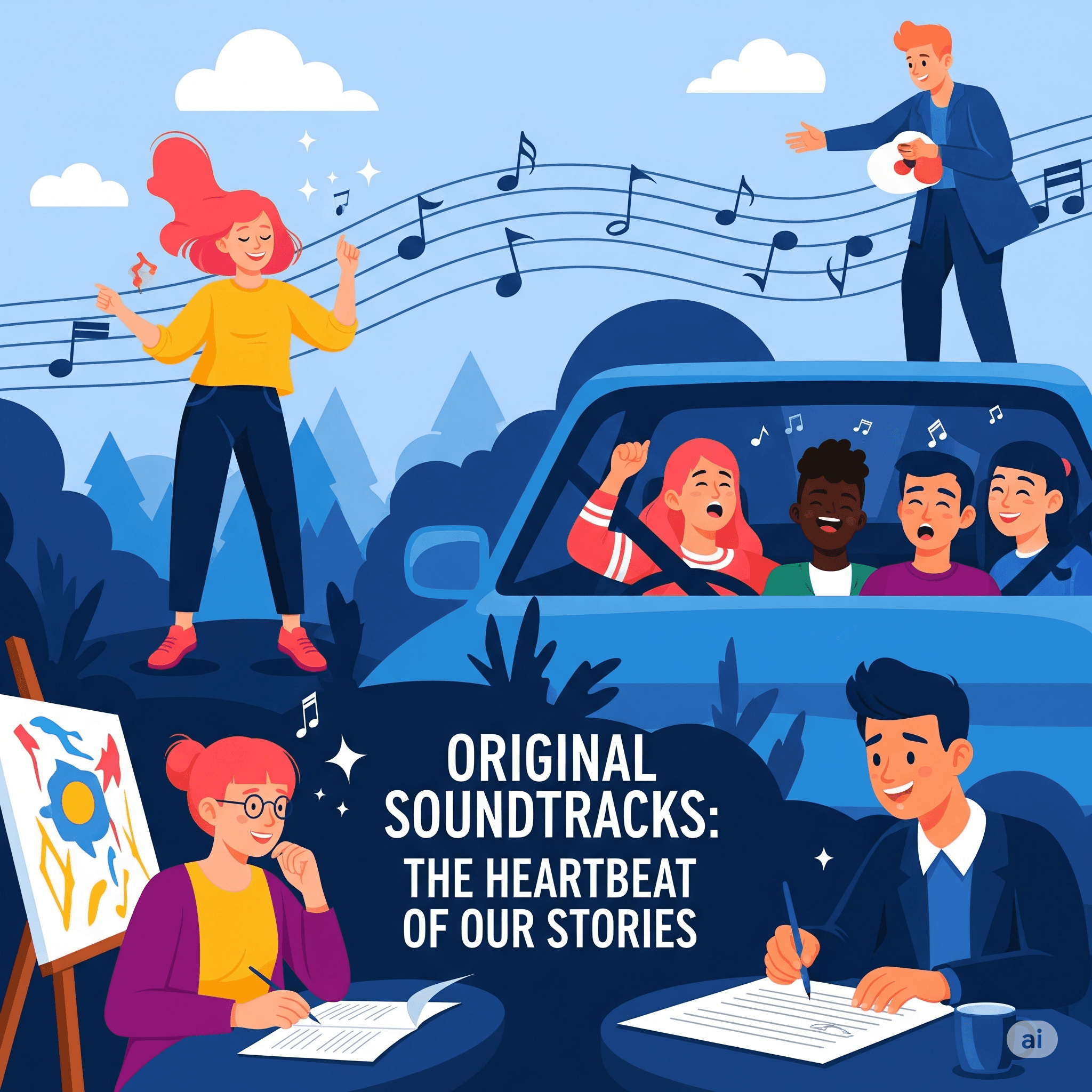Music is the essence of human history, taught by the mouths of many, carrying the emotion, events and identity of those who were lucky enough. The music has a rich history, but now it has turned into a simple fun thing that we occasionally listen to. Which also gave birth to many musical revolutionaries, and terms like OST.
Let’s make one thing clear, OST is not something crazy, it is just a term, nothing more and nothing less. But it definitely has some interesting stories attached to it. Because the OST meaning in English varies based on where it is used. So today we will finally have a look at what even OST full form is, along with some interesting background stories of music. Just stay tuned!
What is the full form of OST in General?
OST technically stands for Original Soundtrack in modern music. It symbolizes a set of music made especially for a particular product. Like a commercial may have an Original Soundtrack that uses the product's highlights as lyrics, and basically promotes it. Movies and TV Shows always have OSTs in them, and the same goes for K-Drama, and Animes. The OST full form in music is overall the same across the board.
But, there are some either terms too that exist as OST, but have nothing to do with Music. For example, OST full form in Outlook is Offline Storage Table, and it goes without saying that Microsoft Outlook is not a music-making software or the name of some singer. Here are some other outsider terms of OST apart from music:
- Open Space Technology: A method of taking meetings where participants aren’t bound by any serious rules, and are expected to adjust accordingly around a central theme. Think of it as a public gathering.
- Opportunity Solution Tree: A Frame world used in product development. The use case varies, but the end goal is to describe how their opportunities are exploited by every single person in the organization. Not in a bad way tho!
- Oral Submucous Fibrosis Therapy: This is one of the many OST full form in medical which basically refers to a chronic condition of the mouth that is treated by this therapy. Not a common name you will ever come across, and even if you do, the OST full form will be used.
- Organizational Skills Training: Similar to the 2nd one, this refers to an office scenario where organizational skills are taught to the peers. It can be to the new recruits, or existing ones that are getting promoted to a leadership position and need some active training to fit in.
- Out-of-School Time: This again is one of the many OST meaning in English that students like to use. This refers to some R&R time with friends after school hours end. It can be some karaoke sessions, weekend dates with their current girlfriends, or summer camps in a faraway land.
Some interesting facts about OST and Music
- Did you know that silence is actually a part of the score? Yes, the silence is a powerful node that allows the listeners to process the music up until the silence. Operas and orchestras use silence a lot, and it’s not an accident!
- Did you know that OSTs are often considered as a culture of its own? Yes, a lot of Asian music industries like Korean Dramas, K-Pop, Individual Songs, and even Anime can turn an OST into a cultural phenomenon.
- Did you know that bards were professional singers? Yes, Ancient bards carried stories from millennia within their voices, and records show that they actually had beautiful voices, maybe even more mesmerizing than your favorite singer.
- Did you know that OSTs are not considered complete? Yes to Most people if a song doesn’t resonate with them, they just move on. But to those where it does, the listeners will enter a state of trance where they are neither listening to the song nor contributing, they just drift with the music.
Frequently Asked Questions
Q1. What does OST Stand for in Music?
Ans. OST is just a short form of Original Soundtrack, so it basically refers to a set of songs that have been released exclusively with a particular media. Like movies have a couple of original songs composed for it only. Video games have it as well as popular Japanese media like Anime.
Q2. How Important OSTs are in movies or TV shows?
Ans. These OSTs often revoke emotional moments attached to a certain part of the movie. Like during a sad scene, a sad song will play, enhancing the overall atmosphere and turning it into a memory. Nowadays TV SHows are made in the same way, further deepening the bond of Original Soundtrack and Original Media in our entertainment industry.
Q3. Do all OSTs include vocals?
Ans. Mostly a large amount of OST does include singers, because it gives the Original Soundtrack a proper narrative that it deserves. But that doesn’t mean that OSTs without singers are bad. Many soundtracks only include instruments, and still, they are loved by the masses. Especially sad songs that often feel right with violins, and pianos and keep the main narrative going without lacking in any way.
Q4. Do OSTs receive awards?
Ans. Absolutely they can. OSTs are after all just a piece of music, so they are treated the same way as in any song. These are the top awards for OSTs that have been given to them for decades:
- Academy Awards aka Oscars
- Grammy Awards
- Emmy Awards
Q5. Do OSTs always include new and original songs?
Ans. More often than not, they do include New and Original Songs. But we have seen it many times when an OST includes a remade version of some old songs. Some may feel that it is disrespectful to the original artist. But let’s be honest, the singer who wrote and sang the song himself allows his music to be reused, or remade. Licenses are distributed accordingly, so the artist earns a fat sum without lifting a finger.











